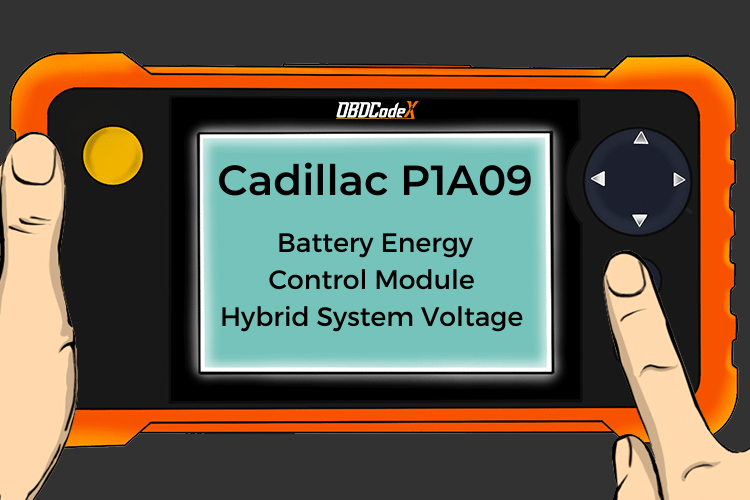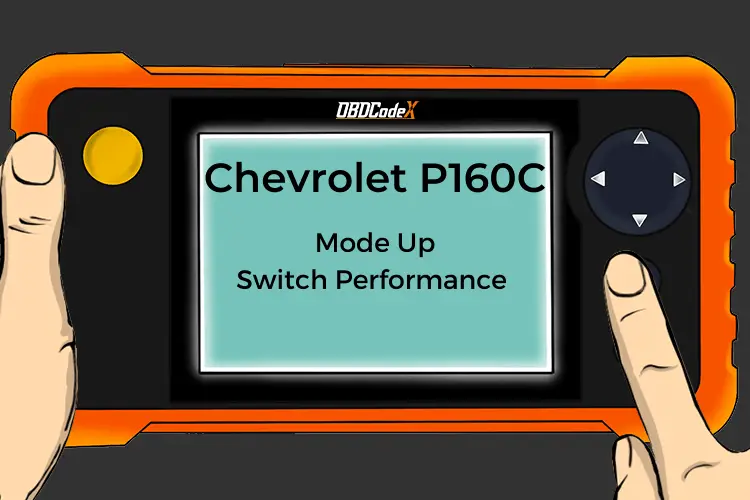P037E: Glow Plug Sense Circuit Low
Is your scanner showing P037E?
No worries. We'll show you what it means and how to deal with it.
P037E: Glow Plug Sense Circuit Low
OVERVIEWWhat Does The P037E Code Mean?
This diagnostic trouble code (DTC) is a generic powertrain code, which means that it applies to OBD-II equipped vehicles that have glow plugs (diesel engine vehicles). Brands of vehicles may include but are not limited to Ford, Dodge, Mazda, VW, Ram, GMC, Chevy, etc. Although generic, the specific repair steps may vary depending on make/model/engine. Anecdotally this code seems more common on Ford vehicles.
The glow plugs and their associated harnesses and circuits are part of a system that is responsible for generating heat in the combustion chamber prior to cold startups.
Essentially, the glow plug is similar to an element on a stove-top. These are incorporated in diesel engines because diesel engines do not use a spark plug to ignite the fuel/air mixture. Rather, they use compression to generate enough heat to ignite the mixture. For this reason, diesel engines need the glow plugs’ help on cold starts.
The ECM throws P037E and associated codes when it monitors a condition outside of a specific range within the glow plug circuit. Most of the time, I would say this would be an electrical issue but some mechanical problems could affect your glow plug circuit on some makes and models. P037E Glow Plug Sense Circuit Low code is set when the ECM monitors one or more low electrical value within the circuit.
NOTE: If other dash lights are currently illuminated (e.g.: traction control, ABS, etc.), this may be a sign of another potentially bigger problem. In this case, you should bring your vehicle to your reputable shop where they can plug in with a proper scan tool to avoid doing any unnecessary harm.
This trouble code is closely related to P037D and P037F.
What Are The Symptoms Of The P037E Code?
Symptoms of a P037E engine code may include:
- Hard starts in the morning or when cold
- Abnormal engine noises on start-up
- Poor performance
- Engine misfiring
- Poor fuel mileage
What Are The Potential Causes Of The P037E Code?
Causes for this code may include:
- Broken or damaged wiring harness
- Fusible link burnt/defective
- Glow plug defective
- ECM issue
- Pin/connector problem. (e.g. corrosion, overheating, etc.)
How Serious Is This P037E Code?
Generally speaking, the severity of this code would be moderate but depending on the scenario, it may be severe. For example, if you reside in moderate to extreme cold conditions, repetitive cold starts with malfunctioning glow plugs will eventually cause unnecessary damage to your internal engine components.
How Can You Fix The P037E Code?
Be sure to check for technical service bulletins (TSBs) for your vehicle. Getting access to a known fix can save you time and money during diagnosis.
Tools
Whenever you are working with electrical systems, some of the basic tools that are a good idea to have are:
- OBD code reader
- Multimeter
- Basic socket set
- Basic ratchet and wrench sets
- Basic screwdriver set
- Rag/shop towels
- Battery terminal cleaner
- Service manual
Safety Tips
- Let engine cool
- Chalk wheels
- Wear PPE (Personal protective equipment)
Basic Step #1
First thing i would do in this situation, would be pop the hood and smell for any kind of irregular burning scents. If present, this may be the trail to your problem. Most times, if there is excessive burning smells it means something is overheating. Carefully follow the smell, if you see any burnt wire coatings or melting plastic around fuse boxes, fusible links, etc. this will need to be addressed first.
NOTE: Visually inspect all ground straps and look for corroded or loose ground connections.
Basic Step #2
Locate and follow the glow plug circuit harness. These harnesses are exposed to extreme heats that may damage wire looms which are there to protect your wires. Especially keep an eye for any spots the harness that may rub on the engine or other components. Repair any damaged wires or looms.
Basic Tip #3
If possible, disconnect your glow plug harness from the plugs. In some cases, you can disconnect it from the the other side of the harness as well and remove it completely from the vehicle as an assembly. If this is the case, You can use your multimeter to verify continuity in the individual wires of the circuit. This would rule out and kind of physical problem within that harness. In some vehicles, this may not be possible. If not, skip step.
NOTE: Make sure to disconnect battery before performing any electrical repairs.
Basic Step #4
Test your circuits. Refer to manufacturer for specific desired electrical values. Using your multimeter there may be numerous tests you could perform to verify the integrity of the circuits involved.
Basic Step #5
Test your glow plugs. Unplug harness’ from plugs. Using your multimeter set to Voltage, you will attach one end to the positive battery terminal and using the other end, you will touch the tip of each plug. The values should be the same as battery voltage, if they are not, this would indicate a problem within the plug itself. This may vary depending on make and model of your particular vehicle, so ALWAYS refer to manufacturer service information FIRST.
Recommended Parts
Below are some recommended auto parts to help you address the trouble code affecting your vehicle and get it running smoothly again:
>>> Glow Plug Control Module
>>> Twippo 372Pcs Waterproof Wire Connectors Kit
>>> ECU
>>> Autel Scanner MaxiCOM MK808S
>>> KAIWEETS Digital Multimeter
>>> DEWALT Socket Set
>>> Amazon Basics Flexible Ratcheting Wrench Set
>>> Amartisan 10-Piece Magnetic Screwdrivers Set
>>> NOCO E404 12.25 Oz Battery Terminal Cleaner
Note: During the purchasing process, please check carefully whether the part you want to buy fits your car!
Reference Sources
P037E: Glow Plug Sense Circuit Low , OBD-Codes.




